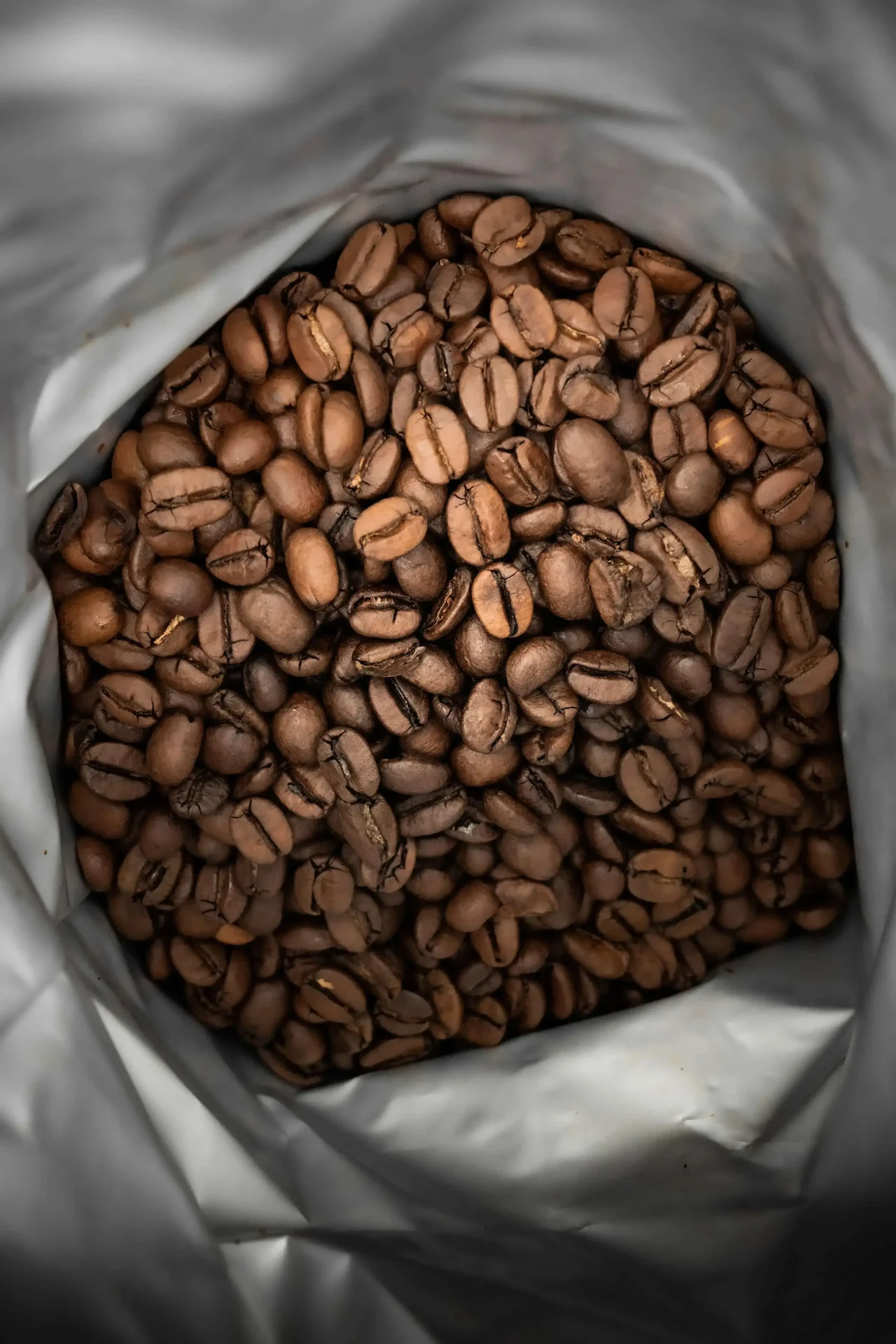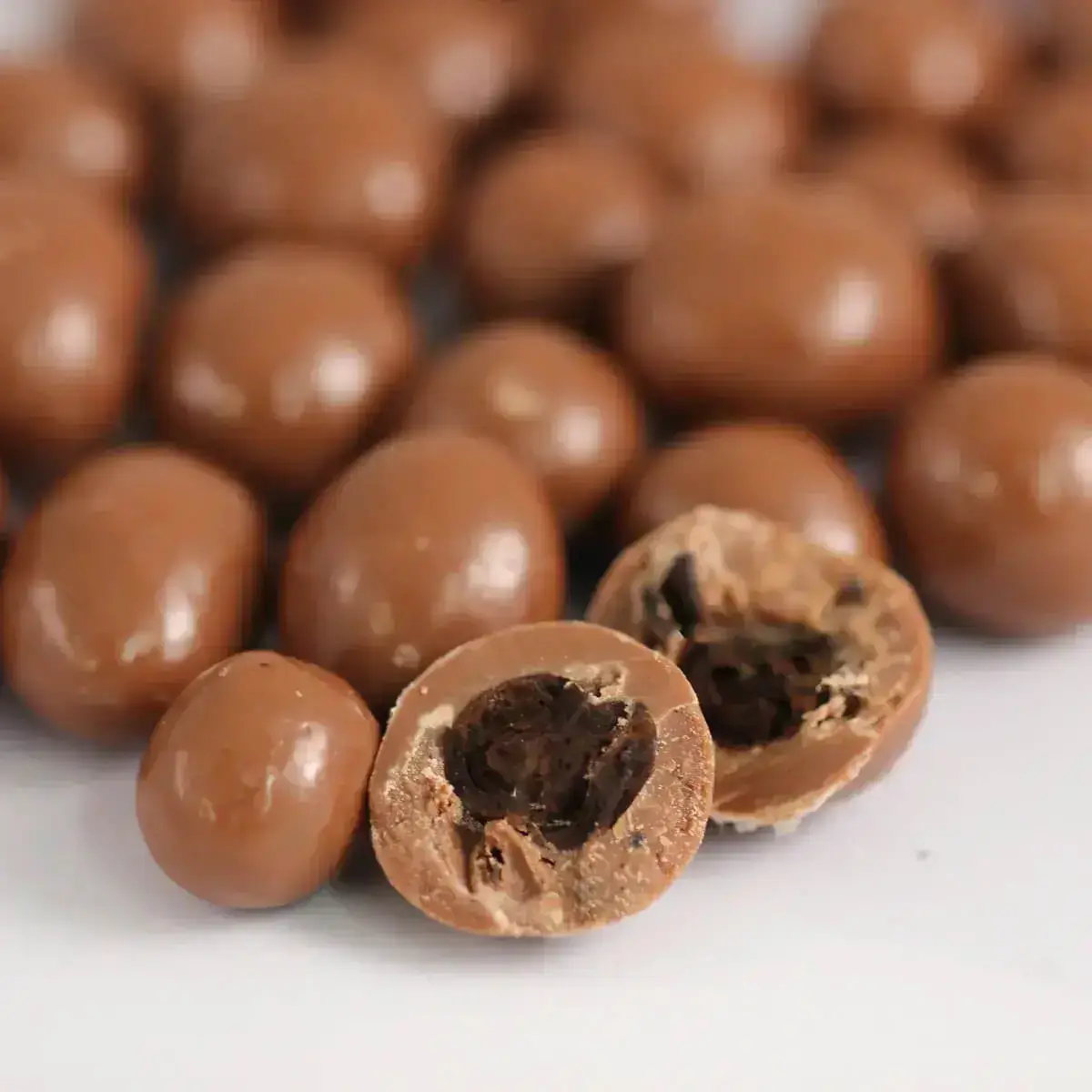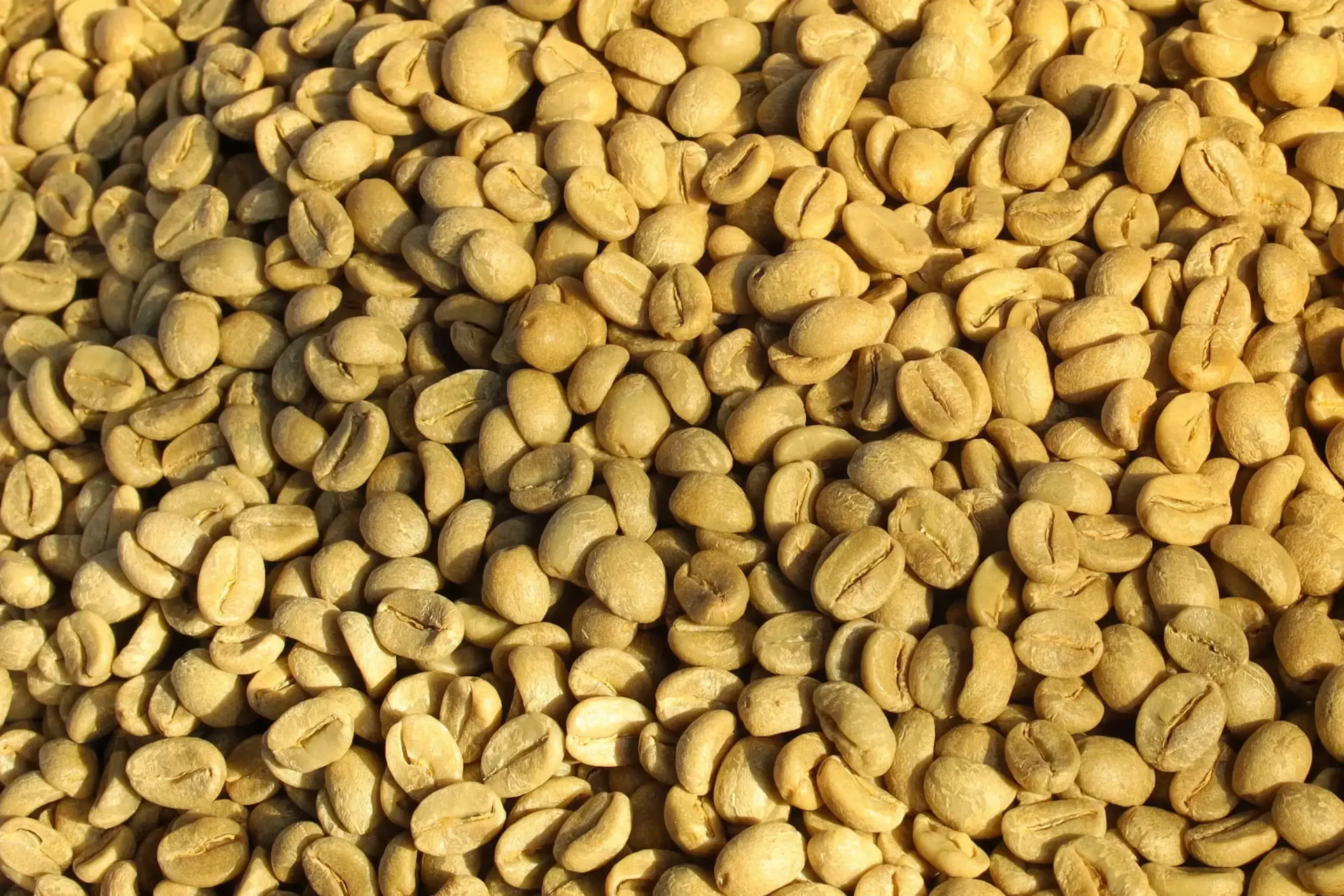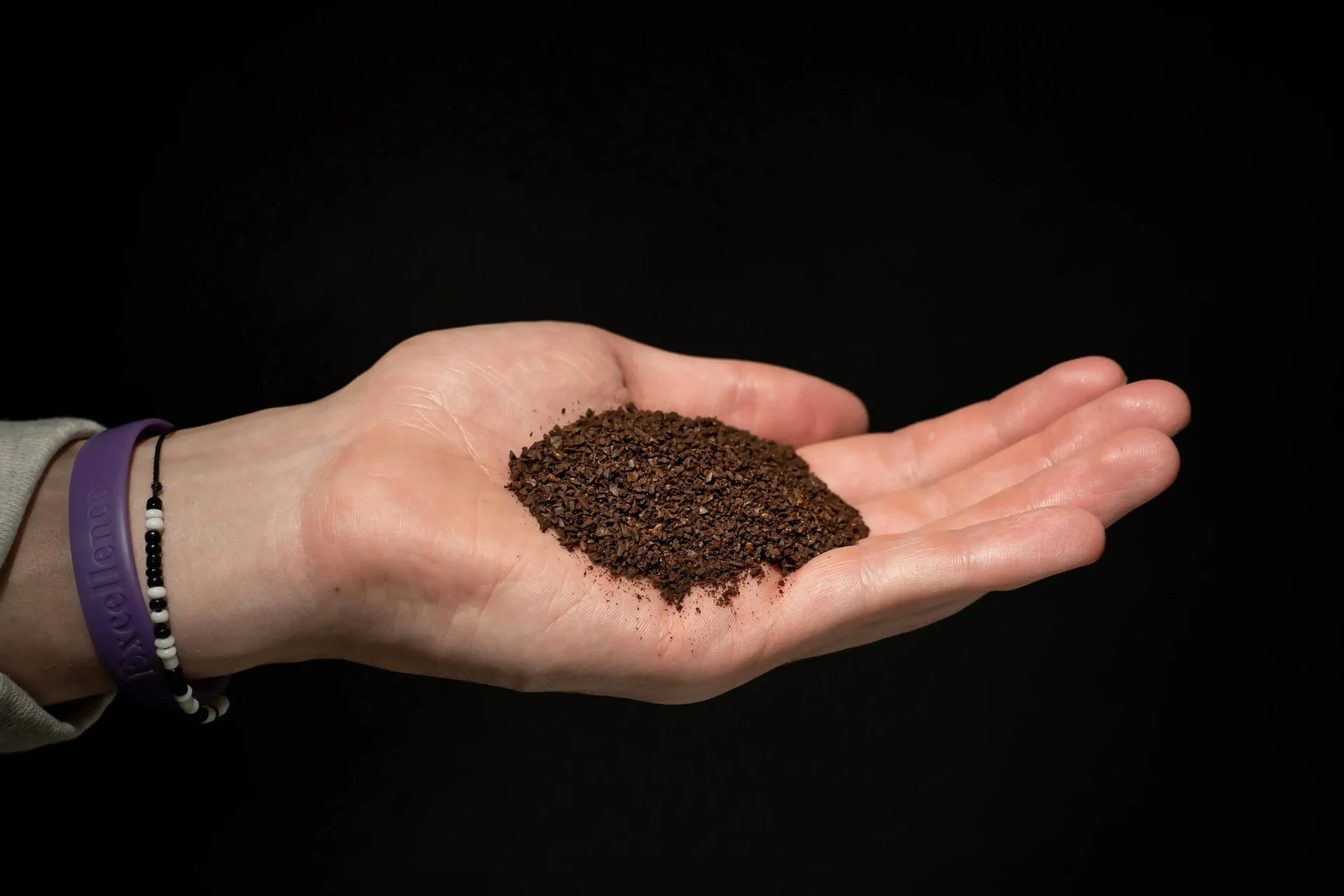Can You Eat Coffee Beans, Is It Safe and Satisfying?

If your love for coffee knows no bounds and you’ve ever contemplated munching on coffee beans, you should elevate your coffee game. The burning question is: Can you eat coffee beans? Rest assured, you’re in the perfect place to find the definitive answer to your curiosity: “Can you eat coffee beans?”
Its short answer is yes, you can. And we’ve compiled everything you need to know if you want to try it too!
Although coffee is delicious to drink, it’s also delicious to eat! Maybe you’ve heard from a friend who enjoys eating roasted coffee beans as a snack, or you’ve tried it yourself.
But we’ll consider this question while examining a handful of different bean varieties.
These beans are usually dried, roasted, and brewed to make coffee.
Because drinking coffee has been linked to numerous health benefits, such as reducing the risk of liver disease and diabetes (type 2 diabetes), eating coffee beans has the same effect.

Munching on chocolate-coated coffee beans is the most popular way to get a caffeine fix.
When eating coffee beans, let’s examine the potential benefits, risks, caffeine content, and flavor (raw, roasted). Plus way to eat them and also get the daily consumption limit.
Table of Contents
Benefits of Eating Coffee Beans
Many nutritionists agree that the benefits of coffee consumption significantly outweigh its ricks.
Antioxidant
Coffee beans are rich in antioxidants, which play a crucial role in neutralizing harmful free radicals in the body. Antioxidants contribute to overall health and may lower the risk of chronic diseases.
Energy Boost
The caffeine content in coffee beans is a natural stimulant that can enhance alertness and combat fatigue. Consuming coffee beans provides a concentrated dose of caffeine, potentially offering a quicker energy boost than a brewed cup of coffee.
Disease Prevention
Some studies suggest that regular coffee consumption is associated with a reduced risk of certain diseases, including type 2 diabetes and liver conditions. Eating coffee beans may contribute to these potential health benefits.
Potential Ricks
While eating coffee beans in moderation is healthy, eating too much for a long may cause problems. Some people are sensitive to substances in the beans, which may lead to some side effects.
Overconsumption of Caffeine
While caffeine can offer a temporary energy boost, excessive intake can lead to adverse effects such as insomnia, increased heart rate, and jitteriness. Eating too many coffee beans, especially in a short period, may contribute to these side effects.
Caloric and Sugar Content
Chocolate-covered coffee beans, a popular snack, often come with added sugar, calories, and fat. Regular consumption of these chocolate-coated treats may contribute to weight gain and other health issues associated with excessive sugar intake.
Digestive Discomfort
Coffee beans are dense and may be challenging to digest. Eating them in large quantities or on an empty stomach can lead to digestive discomfort, including indigestion and nausea.
If you have queries about the effects of coffee beans on your overall health, consult your doctor before making coffee beans a daily snack.
What do roasted coffee beans taste like?
Roasting brings out all the aroma and thrilling tastes in the coffee. These beans will have a pleasant taste, but the taste is bitter, like strong coffee. And that’s why eating with chocolate is a perfect combination.
You can make delightful desserts and snacks. They have a pleasing crunch. That crunch and the bitter flavor combined with sweet chocolate make a lovely treat for coffee lovers.
While coffee beans are crunchy, they’re also a little gritty. So eating them raw wouldn’t be a little pleasant. Sweet, silky chocolate makes the grit just enough to keep fans returning for more.
Can You Eat Raw Coffee Beans?

Yes, raw (green) coffee beans are edible. But only a few people would enjoy eating raw beans. These green beans are not like vegetables, and “green bean” is just a term for coffee beans stripped of their fruit that has not yet roasted.
They are described as having an unpleasant tart taste with a woody texture. They are also tough, chewy, more acidic, and have a high caffeine content than roasted beans.
So eating them wouldn’t be enjoyable. For this reason, snacking on raw (green) coffee beans has never been seen, but we recommend going ahead and trying some if you’re curious.
How Much Caffeine is in a Coffee Bean?
An arabica bean has about 6mg of caffeine, while a robusta bean has about 12mg. Not all caffeine ends up in the cup. Some caffeine is left behind on the grounds when coffee is brewed. So to get the same amount of caffeine, you’ll eat fewer beans than you would brew.
How Much Caffeine is Left Behind?
It depends on your grind size and brewing method. If your grind size is large and you brew fast, you get less caffeine in your cup. Because of the small grind size and the long time, the grounds are steep in hot water; the more caffeine you get. So eating the beans will give you more caffeine than brewing them.
How Many Coffee Beans Can You Eat?
As we know, coffee is a rich source of caffeine, so every morning, many people love to take it before they start their day.
Coffee beans can provide more caffeine than a cup of black coffee but in a more concentrated form.
In short, regarding caffeine, it is safe to eat about 20 to 30 beans daily if you’re not pregnant or caffeine sensitive. And if you break them down into 7-10 beans per serving, roughly the amount of caffeine in a regular 8 oz cup of coffee.
Can You Eat Coffee Grounds?

You may be wondering about snacking on coffee grounds, like the other ways of using coffee beans listed above. Yes, you can. Espresso powder is one popular way to eat coffee grounds, which is dehydrated and ground finely. It’s usually used in baking and as a dessert topping. Speaking of baking, you might want to try our irresistible recipe in “The Ultimate Sour Cream Coffee Cake”.
You should avoid regular snacking on ground coffee. Grounded coffee is difficult to swallow, unlike roasted beans and espresso powder. If you’re intent on eating some coffee grounds (maybe just with some curiosity), don’t worry; if you consume them in moderation, they pose no severe health risks.
Consider using your extra coffee beans or grounds as your skincare routine or an excellent fertilizer for your plants and garden. See our complete list of your extra coffee beans or grounds usage here.
We hope you get the answers to your questions about eating coffee beans. Now enjoy your coffee snacking.
